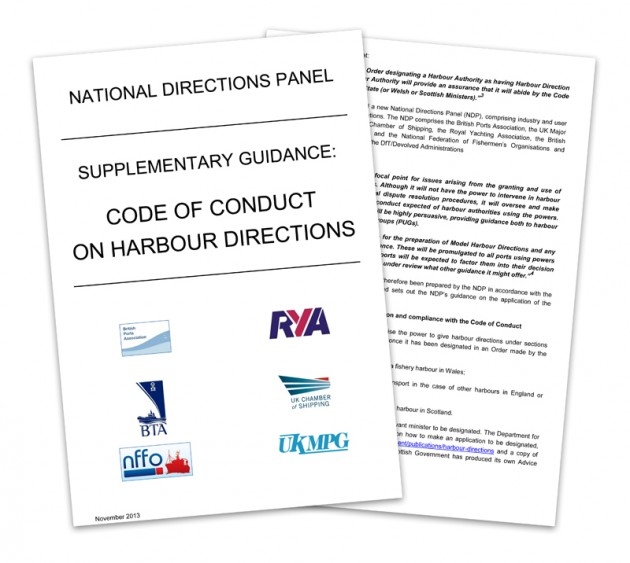Model directions for harbour authorities have been published to prevent harbour authority dictatorship
A Code of Conduct for Harbour Directions has been published to balance out the forthcoming unrestricted powers for harbour authorities.
The Marine Navigation Act 2013 came into effect earlier this year and harbours wishing to have the extended powers it allows will soon be submitting applications.
The first tranche of applications for designation are expected to be made in spring 2014 so the code and supplementary guidance have been produced in readiness for this.
The new publications lay out a recommended process of consultation with port users, provide model directions for harbour authorities and set out a dispute resolution process.
The code stipulates that a harbour authority will be expected to assure the Secretary of State (or Welsh or Scottish Ministers) that it will abide by the Code of Conduct, before it will be designated with harbour direction powers under the Marine Navigation Act 2013.
Failure to comply with a harbour direction is a criminal offence. The guidance therefore reminds harbour authorities that they must ensure that harbour directions are clear and unambiguous.
The guidance also says the harbour directions must be appropriately framed and targeted to be effective and achieve their objectives without unnecessary or inappropriate adverse impacts and it should be clear who is responsible for complying with the harbour direction.
Gus Lewis, head of legal and government affairs for the Royal Yachting Association (RYA), said: ‘It’s taken a year to get to this point and we are pleased with what we have achieved for the leisure boating community.
‘From the outset, when the Marine Navigation (no2) Bill was first introduced, we wanted to have in a place a check and balance for the exercise of this power and a practical framework for the review of inappropriate and unjustified directions.
‘The code and guidance achieve both of these aims and, we believe provide a positive framework for both harbour authorities and port users alike
‘It will enable harbour authorities to manage their responsibilities effectively and provide harbour users with appropriate safeguards.’
The code and supplementary guidance were developed by the RYA, British Ports Authority, UK Major Ports Group (UKMPG) and the UK Chamber of Shipping (UKCoS) in response to the Marine Navigation Act 2013.
National Directions Panel
A National Directions Panel (NDP) has been established under the Code which comprises the British Ports Association, the UK Major Ports Group, the UK Chamber of Shipping, the RYA, the British Tugowners Association and the National Federation of Fishermen’s Organisations and includes observers from the DfT/Devolved Administrations.
It will act as a focal point for issues arising from the granting and use of harbour direction powers and oversee and make recommendations on the conduct expected of harbour authorities using the powers. It will work with local Port User Groups which designated harbour authorities must establish if there is not one already in existence.
“Without the Code of Conduct and supplementary guidance the leisure boating community, as harbour users, would have had limited means of raising concerns over proposed harbour directions that could have adversely affected their activities and navigational safety,” concludes Gus.
Read the Code of Conduct and supplementary guidance here.




